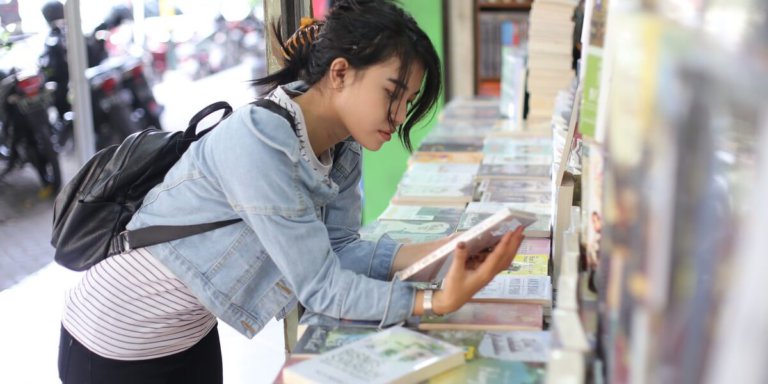
The findings from the 2018 Program International Student Assessment (PISA) are in, revealing which countries scored better according to certain indicators.
This global assessment of education systems is done every three years by the Organisation for Economic Cooperation and Development (OECD), measuring 15-year-olds’ ability to use their reading, mathematics and science knowledge and skills to meet real-life challenges.
China and Singapore ranked first and second in math, science, and reading, followed by Elstonia and Canada.
According to the PISA 2018 Insights and interpretations report, “The aim with PISA was not to create another layer of top-down accountability, but to help schools and policymakers shift from looking upward within the education system towards looking outward to the next teacher, the next school, the next country.
“In essence, PISA counts what counts, and makes that information available to educators and policymakers so they can make more informed decisions. The OECD countries that initiated PISA tried to make PISA different from traditional assessments in other ways too.
“In a world that rewards individuals increasingly not just for what they know, but for what they can do with what they know, PISA goes beyond assessing whether students can reproduce what they have learned in school.
“To do well in PISA, students have to be able to extrapolate from what they know, think across the boundaries of subject-matter disciplines, apply their knowledge creatively in novel situations and demonstrate effective learning strategies.”
Overall, while certain countries have improved their rankings since the last assessment in 2015, the scores don’t show a significant rise over the years, despite heavy investment in education systems in certain countries.
In the OECD, average performance in reading, maths and science remains the same as it was two decades ago https://t.co/LY5365U7Km
— The Economist (@TheEconomist) December 3, 2019
The Economist reported, “Despite the fact that spending per pupil in the OECD has risen by 15 percent, average performance in reading, maths and science remains essentially the same as when the tests started. Pick a country at random and it is just as likely to have regressed as improved.”
The reading proponent on the test, in particular, show that there is a overall declining interest in reading, and that reading skills are not improving on time – although they have improved in a few countries such as Scotland.
Here’s what the assessment found:
Drop in literacy rates
Reading skills have not improved significantly over the past few years, even in high and middle-class income countries.
According to the report, “Over ten million students represented by PISA in 2018 were not able to complete even the most basic reading tasks – and these were 15-year-olds living in the 79 high- and middle-income countries that participated in the test.”
1⃣ in 4⃣ students in OECD countries are unable to complete even the most basic reading tasks, meaning they are likely to struggle to find their way through life in an increasingly digital world.
🆕 #OECDPISA results ➡️ https://t.co/8UxudOYup7 #FutureofWork https://t.co/I6EKxUgTjv
— OECD ➡️ Better policies for better lives (@OECD) December 3, 2019
However, when measuring literacy, the test went beyond reading comprehension. The PISA 2018 defined reading literacy as “understanding, using, evaluating, reflecting on and engaging with texts in order to achieve one’s goals, to develop one’s knowledge and potential, and to participate in society.”
The assessment found that the proportion of 15-year-olds who scored at the highest levels (Level 5 or 6 on the PISA reading test) rose only slightly since the last assessment in 2009 – from 7 percent to 9 percent in 2018. Even in high-performing Singapore, only one in four 15-year old students achieved the highest level.
Declining interest in reading
Percentage of students in OECD countries with poor reading skills (selection):
📖Estonia – 11%
📖Republic of Korea – 15 %
📖Germany – 21 %
📖OECD average – 23 %
📖Luxembourg – 29 %
📖Columbia – 50 %#PISA— DW Politics (@dw_politics) December 3, 2019
The lack of increase in reading ability could be tied to the rise to technology, as the survey also found that reading habits have also changed in this digitally-focused generation.
The findings showed that “students seem to read less for leisure and to read fewer books of fiction, magazines or newspapers because they want to (as opposed to because they have to).
“Instead, they read more to fulfil practical needs, and they read more in online formats, such as chats, online news or websites containing practical information.”
In fact, the survey found an increase in students who find reading “a waste of time”, and that fewer students read for enjoyment purposes.
Therefore, schools must do more to increase reading proficiency and foster a natural interest in reading.
In this era of fake news and accessibility of information via the internet, students must also have digital literacy when it comes to reading online.
As the report states, “All students need to be able to read complex texts, distinguish between credible and untrustworthy sources of information, and between fact and fiction, and question or seek to improve the accepted knowledge and practices of our times.”
Liked this? Then you’ll love…
PISA to test more diverse range of skills in the future
Why the Programme for International Student Assessment (PISA) is problematic







